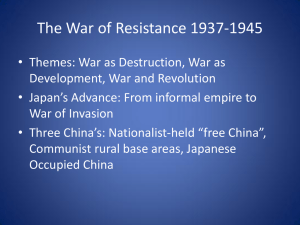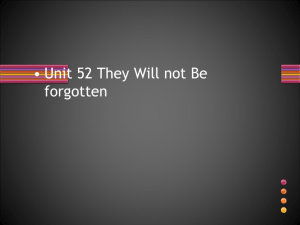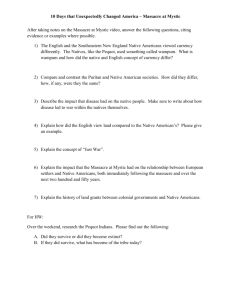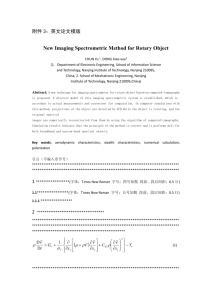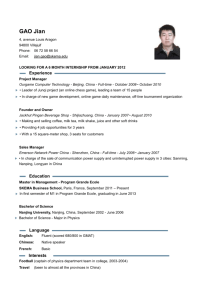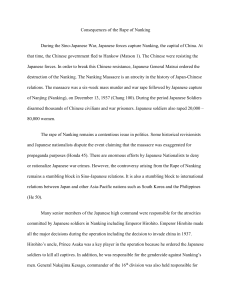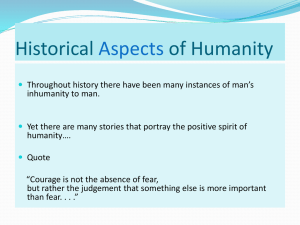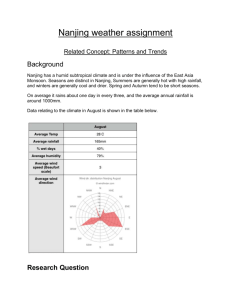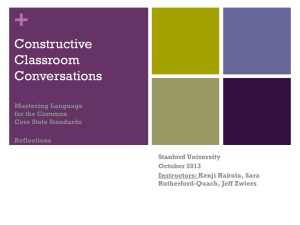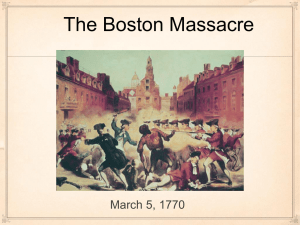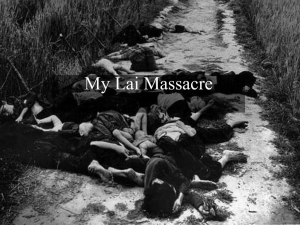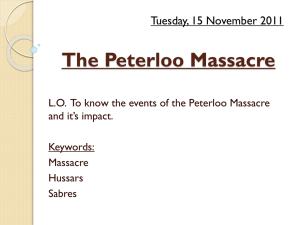China`s War of Resistance: Nanjing Massacre and Beyond
advertisement
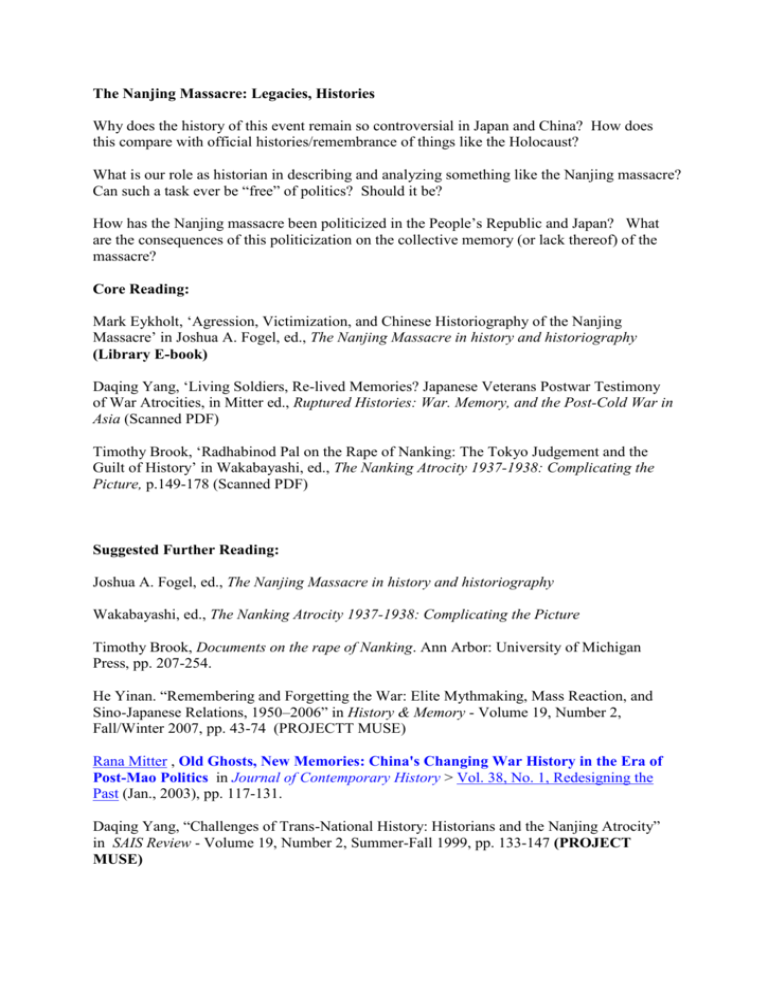
The Nanjing Massacre: Legacies, Histories Why does the history of this event remain so controversial in Japan and China? How does this compare with official histories/remembrance of things like the Holocaust? What is our role as historian in describing and analyzing something like the Nanjing massacre? Can such a task ever be “free” of politics? Should it be? How has the Nanjing massacre been politicized in the People’s Republic and Japan? What are the consequences of this politicization on the collective memory (or lack thereof) of the massacre? Core Reading: Mark Eykholt, ‘Agression, Victimization, and Chinese Historiography of the Nanjing Massacre’ in Joshua A. Fogel, ed., The Nanjing Massacre in history and historiography (Library E-book) Daqing Yang, ‘Living Soldiers, Re-lived Memories? Japanese Veterans Postwar Testimony of War Atrocities, in Mitter ed., Ruptured Histories: War. Memory, and the Post-Cold War in Asia (Scanned PDF) Timothy Brook, ‘Radhabinod Pal on the Rape of Nanking: The Tokyo Judgement and the Guilt of History’ in Wakabayashi, ed., The Nanking Atrocity 1937-1938: Complicating the Picture, p.149-178 (Scanned PDF) Suggested Further Reading: Joshua A. Fogel, ed., The Nanjing Massacre in history and historiography Wakabayashi, ed., The Nanking Atrocity 1937-1938: Complicating the Picture Timothy Brook, Documents on the rape of Nanking. Ann Arbor: University of Michigan Press, pp. 207-254. He Yinan. “Remembering and Forgetting the War: Elite Mythmaking, Mass Reaction, and Sino-Japanese Relations, 1950–2006” in History & Memory - Volume 19, Number 2, Fall/Winter 2007, pp. 43-74 (PROJECTT MUSE) Rana Mitter , Old Ghosts, New Memories: China's Changing War History in the Era of Post-Mao Politics in Journal of Contemporary History > Vol. 38, No. 1, Redesigning the Past (Jan., 2003), pp. 117-131. Daqing Yang, “Challenges of Trans-National History: Historians and the Nanjing Atrocity” in SAIS Review - Volume 19, Number 2, Summer-Fall 1999, pp. 133-147 (PROJECT MUSE) Higashinakano Shudo, The Nanking Massacre: fact versus fiction; a historian's quest for the truth. DS 796.S2 Poshek Fu, Passivity, resistance, and collaboration : intellectual choices in occupied Shanghai, 1937-1945. DS 777.53.C4 Steven I. Levine and James C. Hsiung ed., China's bitter victory : the war with Japan, 19371945 DS 777.53.D6 Mousheng Hsitien Lin, Documents concerning the Sino-Japanese conflict
